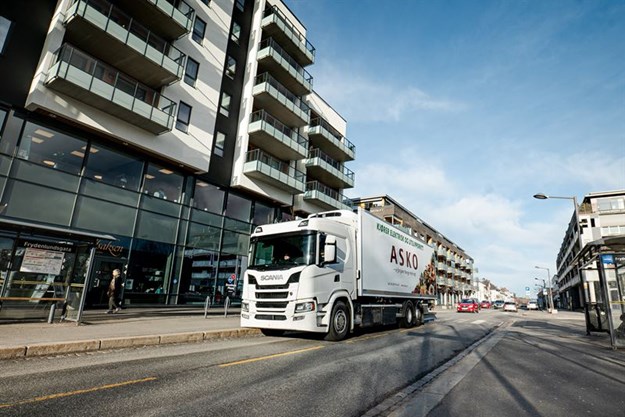Handful of electric trucks tested in operators’ fleets
Swedish truckmakers Volvo and Scania are spotlighting their latest global developments in electric commercial vehicle technology.
Volvo Trucks offers a look at its North American Class 8 battery-electric project trucks, utilising existing electromobility technology within the Volvo Group into the existing North American VNR model.
The pilot demonstration is part of the Volvo Low Impact Green Heavy Transport Solutions (LIGHTS) project, a collaboration between 15 public and private partners to demonstrate the viability of all-electric freight hauling in high-density traffic and urban areas.
“The Volvo LIGHTS project demonstrates that for the entire endeavor to come together, it takes more than just the truck. It’s the delivery of the complete eco-system for zero-emission, heavy-duty transport, and taking responsibility for that ecosystem,” Volvo Trucks North America president Peter Voorhoeve says.
“You can only achieve this by having a common goal, fully integrated collaboration amongst all stakeholders, and agreeing to be pioneers together.”
The VNR Electric project trucks are set to be put into real-world commercial operations with two operators, while Volvo adds its North American arm will begin the first phase of serial production and commercial offering of the Volvo VNR Electric in late 2020.
Meanwhile, Norwegian wholesaler Asko is deploying two battery electric Scania distribution trucks in its operations in Oslo, Norway, a progression of the partnership between the two after earlier hydrogen-powered fuel cell electric trials.
More on Asko’s fuel-cell Scania G 350 tests, here
The pilot marks another milestone in the cooperation regarding electrified solutions for heavy transport between Scania and Asko, the former notes.
The two trucks have a battery capacity of 165kWh, giving them a range of 120km, and are charged by 130kW cable charging.
“In the long run, electrification will be key to achieving a sustainable transport system for heavy vehicles as well,” Scania head of sales and marketing Karin Rådström says.
“On the journey, it is as important as ever to work with customer-near development to understand the impact on the customers’ full operations, not only making sure that a technical solution works and the electricity that charges the batteries is sourced from renewable energy.
“That is why we are pleased with yet another important project together with Asko.”
The project received financial backing from Enova, a state enterprise owned by the Ministry of Climate and Environment in Norway.
“Scania is continuing to invest in and develop electrified solutions and it will not be very long until we reach a tipping point where electrification for heavy transport will become a sound stand-alone investment for our customers. However, we are not quite there yet,” Scania says.
“Scania has taken an active part in the development of batteries and battery cells, in our own research, through partnerships and with customers. It is an area where we expect significant progress in the next few years, including improvements that will cater for varying transport assignments while keeping the total cost of ownership for our customers in mind,” Rådström adds.



